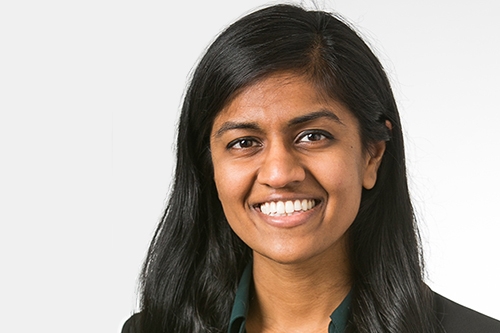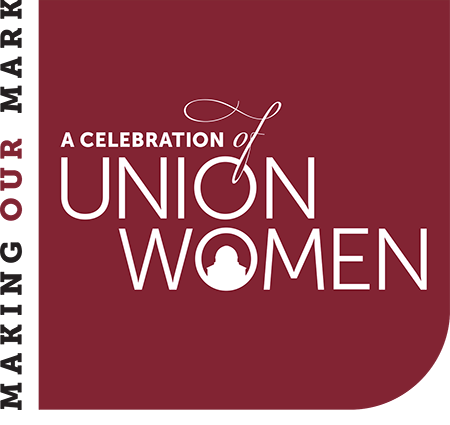Shilpa Darivemula '13 was an interdisciplinary major (biology and Spanish and Hispanic studies) at Union College before earning an M.S. from Clarkson University (formerly Union Graduate College) and an M.D. from Albany Medical College. Today she is an OBGYN resident physician at Dartmouth-Hitchcock Medical Center and the creative director and founder of the Aseemkala Initiative, which is her passion. A group of female artists and physicians, Aseemkala members use their traditional dances to perform stories of healthcare inequity. They are activists who believe that diversity in healthcare stories should be represented by diverse women. They seek to empower women while reminding the medical community about the shared goal of improving the human condition equitably. Shilpa enjoys running and dancing in her free time, and taking long walks around Boston with her husband, Arhant Rao.
What are the most challenging and rewarding aspects of your career or volunteer activities?
The most rewarding parts of my job are being present for my patients as they undergo some of the greatest transitions of their lives – entering motherhood, entering menopause, dealing with fetal loss, with cancer diagnoses and other unexpected events along their journeys. Watching them choose their own paths and transform as they greet life’s challenges is a profound honor. I find that translating the experience of bearing witness into dance stories allows me to express the joy, sadness, anger and pride I have as their physician. Research into health equity allows me to raise larger questions of systemic biases and resource disparities implicated in poorer health outcomes for certain women. Grappling with the system while treating the individual and their community is one of the greatest challenges, I would say.
Who inspired/inspires you, both professionally and personally?
People and their stories. Their resilience, their ingenuity, their diversity of thought and ideas.
What advice would you offer today’s women students, not just at Union, but across the country?
Women are often told to behave. As a professional now, working in an imperfect system, I realize the cost of “being good.” I realize how it holds women, their rights and their ideas hostage to ensure the status quo continues. We just cannot accept “being good” any longer. Women before us have thought similarly, earning us the rights we have accrued thus far. However, the journey forward is fraught with even more challenges that require our diverse female voices to push for change. It is imperative that every young woman entering college works on radical acceptance of who she is and the importance of her thoughts and actions. Stop “behaving” and working to be good; I want young powerful women to redefine the rules, ask the hard questions, push boundaries and be great. Remember, knowing you are enough is more powerful than you can imagine.
What was your most formative experience at Union?
Where do I even begin? I do not think I can point to a single formative experience. Who I was when I entered Union was not who I was when I left. I attribute the change to many people, experiences and opportunities that crossed my path at Union. The community you create at Union will redefine who you are, your identity and how you want to be a citizen in this world. To this day, my classmates and I from Webster House and Friends still meet—evidence of Union friendships that have stood the test of time. The professors go above and beyond to support your ideas and guide you as you navigate your path forward. The staff are family. I remember how Lorraine, one of the serving staff members at Upper, would often tell me to sit down and eat a good lunch before running onto the next meeting or class. She would tell me gently and lovingly to care for myself. I think of Union as home. These experiences, your relationships with friends and professors, and your desire to push yourself will really set the course on the rest of your life.

